Products
By building relationships with customers and listening to their needs, we create innovative, high-quality scientific tool kits so researchers can focus on improving the world.
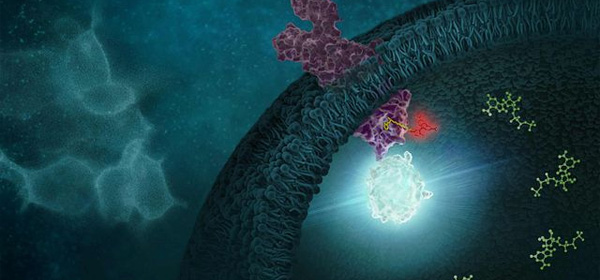
Accelerating Drug Discovery Research
- Drug discovery researchers need high-quality chemical probes to help them study how a potential drug molecule binds their target of interest.
- Promega scientists collaborated with WuXi AppTec to demonstrate methods for developing chemical probes using DNA-encoded libraries – massive banks of billions of molecules for early-stage drug discovery.
- The paper, published in Cell Chemical Biology, creates opportunities for researchers to develop novel NanoBRET™ Target Engagement Assays for understudied classes of proteins.
Safeguarding Healthy Potato Crops
- The Wisconsin Seed Potato Certification Program (WSPCP) helps Wisconsin seed potato growers maintain healthy potato crops by limiting the spread of Potato Virus Y (PVY).
- The WSPCP diagnostic laboratory uses the Maxwell® RSC Instrument to purify nucleic acids from potato samples. The nucleic acids can then be analyzed using polymerase chain reaction (PCR).
- The automated workflow helps the WSPCP team deliver results to potato growers within 48 hours of receiving a sample, helping them make real-time decisions about their seeds and crops.

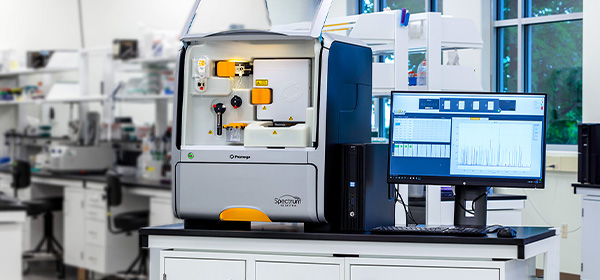
Providing Critical Evidence for Criminal Investigations
- The New Hampshire State Police was looking to stop outsourcing time-sensitive and complex evidence to out-of-state forensic labs.
- Spectrum CE System allows them to save time and money by analyzing samples from murder and sexual assault cases in the state forensic lab.
- Paired with PowerPlex STR analysis chemistry, the system is helping to generate more data from mixed and degraded DNA samples, giving investigators more information to work with.
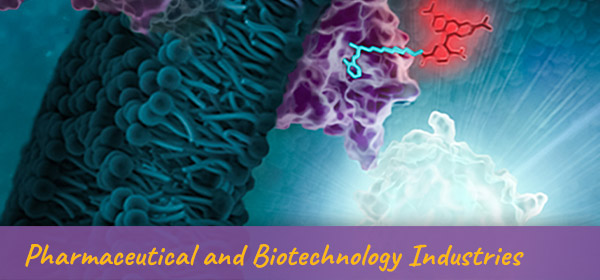
Investing in Research and Innovation
To stay ahead of the evolving scientific landscape, Promega drives technological progress in crucial areas, guided by insights from scientific leaders across various disciplines. Our scientists engage in foundational research, broadening their expertise, and collaborate with peers in academia and industry.

Supporting and Servicing Our Products
Promega meets the unique needs of our customers from invention to delivery by providing comprehensive service and support with a focus on precision and quality. Our global service teams assist with troubleshooting and collaborate scientifically to ensure success with all our products.
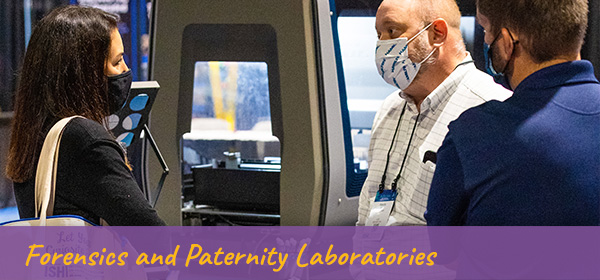
Supporting Law Enforcement Around the World
Promega provides reagents, instruments and specialized teams that support human identification laboratories. In addition, Promega launched the International Symposium on Human Identification, the world’s largest conference focused on technologies, policies, and innovations in forensic DNA analysis for human identification.
Screening for Lynch Syndrome with FDA-cleared Diagnostic Tool
Isolating DNA for Ancestry Testing
Providing Technologies for Cosmetics, Food and Water Testing
Giving Names to Migrants Who Died in a Mediterranean Sea Shipwreck
Advancing New Applications for Established Tools
Developing Innovative Tools to Understand Biology
Getting Results Even from Degraded Forensic Samples
Helping to Monitor Water Quality for Cooling Energy Plants
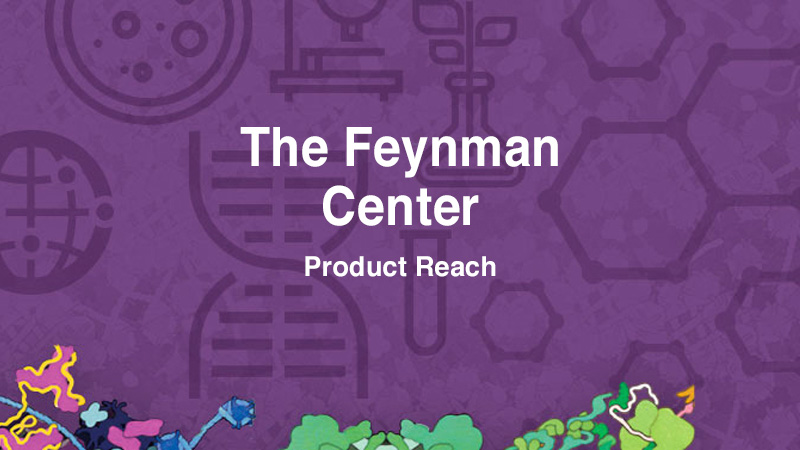
Supporting Customers with Quality Management System Certifications
Promega is committed to quality and establishing reliable and effective processes. Sixteen of our global locations are certified to meet the requirements of ISO 9001, ISO 13485 or both, laid down by the International Organization for Standardization and monitored by a third party. We were also the first manufacturer certified to the ISO 18385 standard that minimizes the risk of human DNA contamination in products used to collect, store and analyze biological material for forensic purposes.
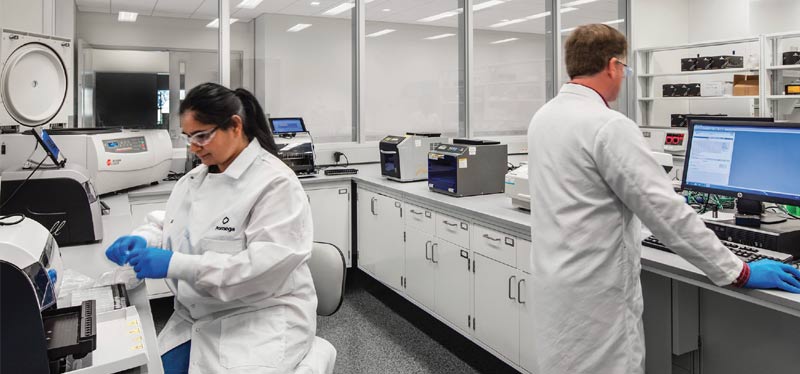
Our Customer Focus
Clinical research and molecular diagnostics labs are constantly finding new ways to better diagnose and provide treatment. They have accessed a broad range of Promega offerings including Current Good Manufacturing Practice (cGMP) reagents, instruments, and custom solutions to meet specific requirements. Throughout the pandemic, Promega was fully engaged in serving needs related to COVID-19. By the end of 2020, Promega products supported approximately 30 COVID-19 test kits marketed by diagnostic manufacturers around the world; an estimated 725 clinical labs worldwide were using Promega products to process patient samples for COVID-19 testing; and Promega provided enough amplification reagents and enzymes to enable testing an estimated 735 million samples for SARS-CoV-2.
Microsatellite Instability Testing - Promega MSI Analysis (research use) System is a gold standard MSI assay in clinical research. The OncoMate® MSI product became available as an in-vitro diagnostic (CE-IVD) to the European market in March 2020. It enables labs to determine MSI status in tumor tissue when diagnosing and treating cancer patients. In addition to being an indicator of hereditary cancer syndromes, MSI status is recognized as a key factor in determining if patients are eligible for a new and effective class of oncology drugs, PD-1 inhibitors, that are having dramatic results in extending the lives of late-stage cancer patients.
Academic and government researchers work on the front lines of discovery. Many of these scientists are currently engaged in massive worldwide efforts to develop a more comprehensive understanding of SARS-CoV-2 biology to develop sensitive detection methods, drug treatments and vaccine options. Promega offers collaborative technical support and a broad portfolio of reagents and instruments that streamline workflows and expedite the work of research labs studying coronaviruses, as well as the many labs engaged in answering a vast array of complex biological questions that vitally affect our world. Promega continues to develop and improve technologies from nucleic acid isolation and PCR, to advanced assays for cellular biology, metabolism, 3D cellular structures and organoids, to protein manipulation and CRISPR knock-ins for tagging cell lines. These advanced tools help researchers successfully publish results, fulfill their research programs and explore scientific frontiers.
Pharmaceutical and biotechnology industries are accelerating methods in drug discovery thanks to advanced techniques that get to answers faster. Promega bioluminescent technologies are powerful tools that enable scientists a real-time approach to learning. Promega technologies support research for both small molecule drugs and biological medicines.
- Small Molecule Drugs - The process of small molecule drug discovery can be complex and challenging. At early phases, researchers may screen more than 100,000 compounds at once to identify leads that can be further optimized and turned into new drugs. The availability of reliable and predictable high-throughput compatible assays serves a crucial step toward discovering new safe and effective drugs. Small molecule drugs treat a variety of conditions, are chemically synthesized and can enter cells easily to affect specific target proteins.
- Biological Medicines - Biologics are large molecules with complex, heterogeneous structures. Due to their high degree of complexity, the development of biologics drugs requires a comprehensive set of quantitative, accurate and precise bioanalytical tools. Biological medicines tend to be at the forefront of modern medical advances.
- During the pandemic when graduate students, post-docs and PIs in academic research labs were working in shifts to reduce the density of people in the lab, Promega’s Thaw-and-Use cell-based assays helped scientists continue their work without the need to continuously culture cells. Many of our Pharma and Biotech clients also outsourced important research projects to our Elite Access Services so Promega’s scientists could assist in the continuation of their research and discovery programs.
Scientists working in applied fields like environmental and food testing provide a wide range of checks and balances from testing for contaminants and viruses to confirming genetic make-up. Promega technologies support these molecular-based methods to solve problems and expedite results for the following types of testing:
- Water Quality – Microbiological analysis of drinking water and industrial water systems is crucial for protecting public health and infrastructure integrity. The luminescence-based technology in the Promega Water-Glo™ System allows consistent low-level detection of all live microbes in minutes, providing an ideal early warning system for environmental and industrial water monitoring. In 2020, Promega developed protocols specifically for detecting SARS-CoV-2 RNA in wastewater, as well as a new product, the SARS-CoV-2 RT-qPCR Kit for Wastewater, in response to this emerging customer need.
- Plants and Food – Testing of DNA in plant tissues is an important process in various fields of agricultural research, including crop trait development and seed quality control. Food testing ensures that food products are pathogen-free and safe for consumption. DNA extraction chemistries are also used to purify nucleic acids from food, seeds or plants for use in downstream GMO testing to confirm the amount of GMO present in plant or food samples and ensure compliance with EU and global regulations.
- Cosmetics – Promega bioluminescence-based assays have been the gold standard used in research and drug discovery applications for many years. These simple “add-mix-measure” assays also provide a scalable way to assess cosmetic formulations for toxicity/irritants without using animal testing.
Labs engaged in the work of DNA-based human identification are obtaining DNA from biological samples to develop investigative leads from crime scenes, help bring closure to the families of loved ones lost in mass disasters, or even help exonerate people wrongly convicted of a crime. Capillary electrophoresis (CE) and massively parallel sequencing (MPS) are two common methods used for human identification in forensic and paternity testing labs. Promega offers reagents and instrumentation for both CE and MPS analysis workflows and supports these products with specialized teams of former forensic DNA practitioners who assist laboratories with applications training, validation of DNA analysis methods, as well as with setup and maintenance of equipment for workflow automation. Promega has worked with human identification laboratories since the emergence of DNA forensics 30 years ago.